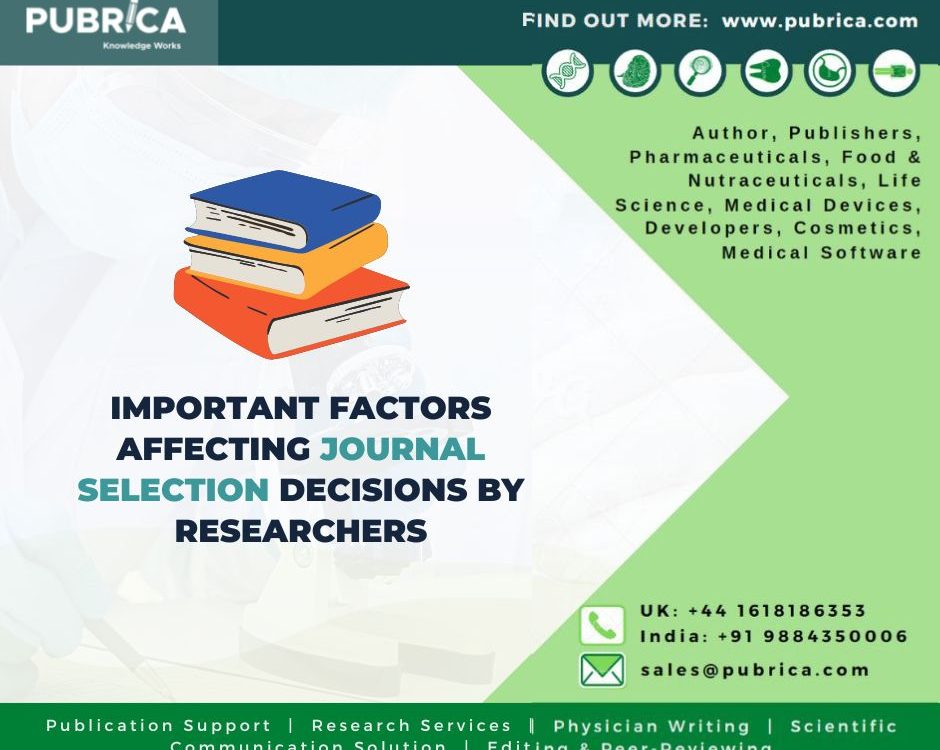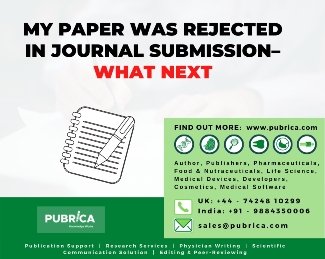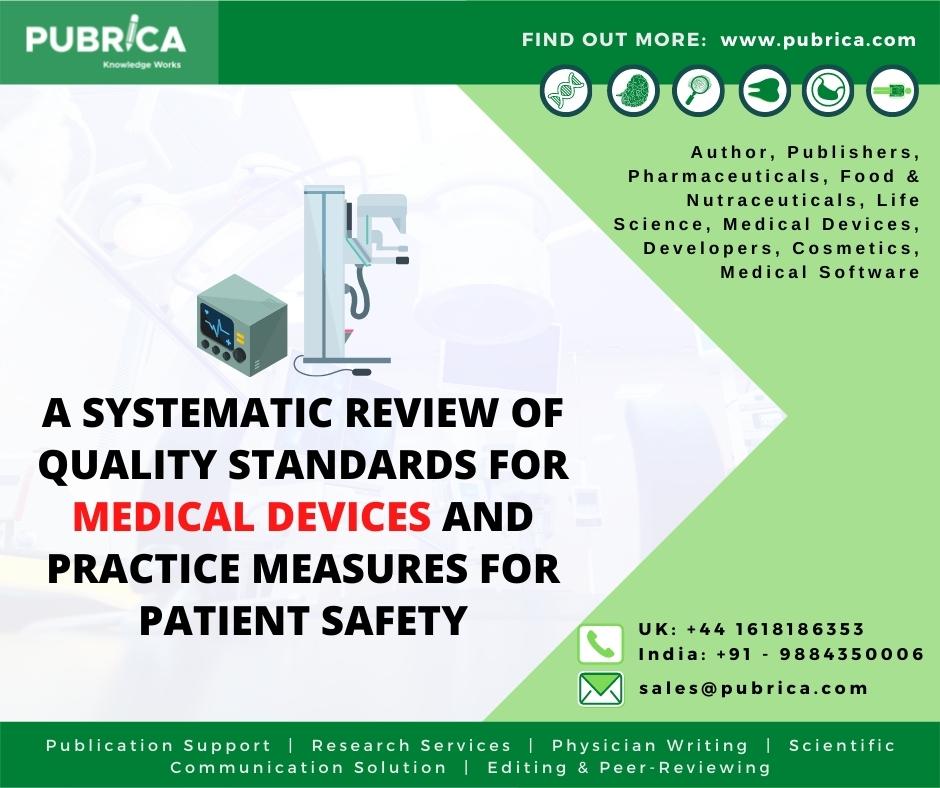
A systematic review of quality standards for medical devices and practice measures for patient safety
April 28, 2022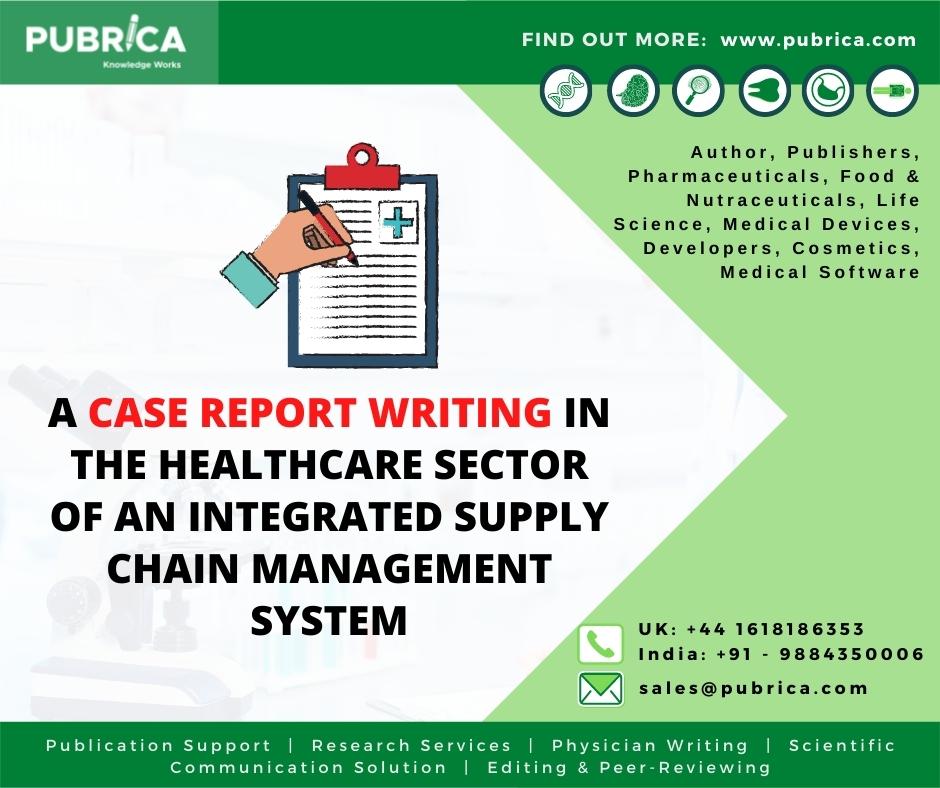
A case report writing in the healthcare sector of an integrated supply chain management system
May 9, 2022In brief
Researchers put their sights on becoming published as soon as they finish their dissertation. Every researcher’s ambition is to publish in top-tier, peer-reviewed publications PubMed stores. Journal selection services produced and hosted by PubMed serve as quantifiable benchmarks for scientific achievements. However, immediately following the completion of a thesis, entering the world of journal articles is a difficult task. Everything must be carefully prepared, from what to publish to how many articles may be written from the thesis to where they will be published. The main objective of this blog was to critically evaluate Peter and Kaplan’s Choose PubMed Journals to Publish Generic Drug Papers and the impact of policies designed to increase generic drug uptake by the Department of Medicine and Therapeutics The Western Infirmary, Glasgow, Scotland, United Kingdom.
Introduction
Step-by-Step Guide to Submitting and Publishing in PubMed
Once your work is complete, the next natural step is to submit it to the intended journal for publication. Articles can be raised and published in PubMed in various methods, and journals may become selective in some instances and only publish a sub-set of articles. If the journals do not do so within one month of publication, the scientific journal finder can use the National Institutes of Health Manuscript Submission (NIHMS) system to upload their final peer-reviewed articles.
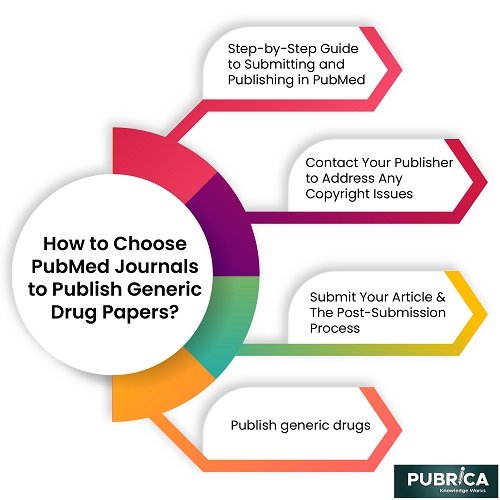
Contact Your Publisher to Address Any Copyright Issues
Before submitting to PubMed, it’s critical to consult with the publisher and get their feedback. You can send an email to the publisher seeking the following information, including the citation of your published paper and the NIH grant number/details:
- Enquire if the journal is willing to accept the submission or if you can go ahead and do it yourself.
- Enquire about any embargo periods.
- Ask about the paper version that can be submitted (typically the final peer-reviewed document).
- Ask whether any changes or corrections need to be made before it is submitted to PubMed.
Submit Your Article
Confirm your eligibility for submission considering the National Institutes of Health’s public access policy. Before continuing with the proposal, double-check that you have all the necessary information. This comprises funding information, citations for publishing (publication date, title, journal name, etc.), the final peer-reviewed paper, additional materials, and the publisher’s embargo period.
The Post-Submission Process
The NIH assigns the deposited file an NIHMSID and transforms the submission to PMC format. The NIH then sends it to the author, who will evaluate it. The reviewing author signs off on the submission, connects financing and sets a date for the public release. The submission is then converted to the final PMC format by NIH. As soon as the reviewer accepts the PMC-ready file in NIHMS, NIH awards the paper a PubMed Central reference number (PMCID). As of the public release date, the full-text version of the manuscript is currently publicly available on PMC.
Publish generic drugs
The Publication of Generic Pharmaceuticals is an influential peer-reviewed worldwide professional journal created by and for generic medicines specialists. It offers professional analysis, briefings, and legal updates on all elements of generic pharmaceutical company development, regulatory affairs, manufacturing, and marketing. Papers directly relevant to practitioners and achieve the highest academic standards are published in each quarterly edition of the Journal Selection Service for publishing a research paper. Substituting generic medications for brand-name goods is loaded with disagreement, and healthcare practitioners and patients both are typically hesitant. There are concerns that generic medicine substitution requirements may be ineffective for pharmaceuticals with a small or broad therapeutic range and substantial intra- or inter-subject variability. Fears have led to recommendations for individual and population bioequivalence metrics, which may be more accurate than average bioequivalence assumptions.
Generic medicine has a similar active ingredient as its brand-name equivalent and produces the Journal selection help of the therapeutic effect. Inactive components in generic medications do not have to be the same as in brand-name pharmaceuticals. In terms of dose, safety, efficacy, strength, stability, quality, and how it is taken and administered, a generic drug is identical to a brand-name medicine.
Conclusion
The study discusses some of the major challenges and concerns surrounding generic medication replacement, such as the PubMed use of an average estimate of bioequivalence and patients’ risk perceptions. According to generic manufacturers, exclusive rights allow them to recover costs associated with being the first to market with a generic. Increasing the acceptance and usage of generic medications requires ensuring a functional medicines regulatory authority and developing a relatively healthy market for generic pharmaceuticals.
About Pubrica
Pubrica meets summit standards and protocols of journal publishing ethics in every single phase of services and processes. Pubrica adheres to authorship guidelines drafted by the International Council of Medical Journal Editors (ICJME), and the scope for services will be routinely updated as per the Committee of Publication Ethics (COPE) and International Society of Medical Publication Professionals guidelines (ISMPP).
References
- Meredith, Peter. “Bioequivalence and other unresolved issues in generic drug substitution.” Clinical therapeutics 25.11 (2003): 2875-2890.
- Kaplan, Warren A., et al. “Policies to promote use of generic medicines in low and middle income countries: a review of published literature, 2000–2010.” Health policy 106.3 (2012): 211-224.

